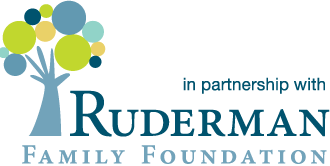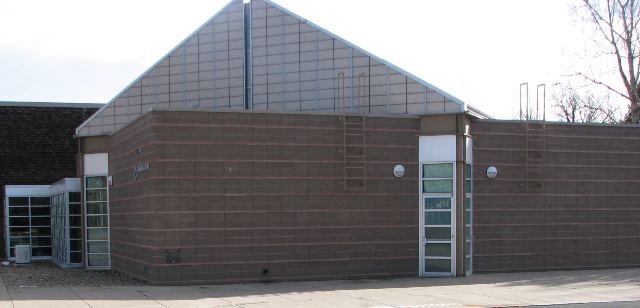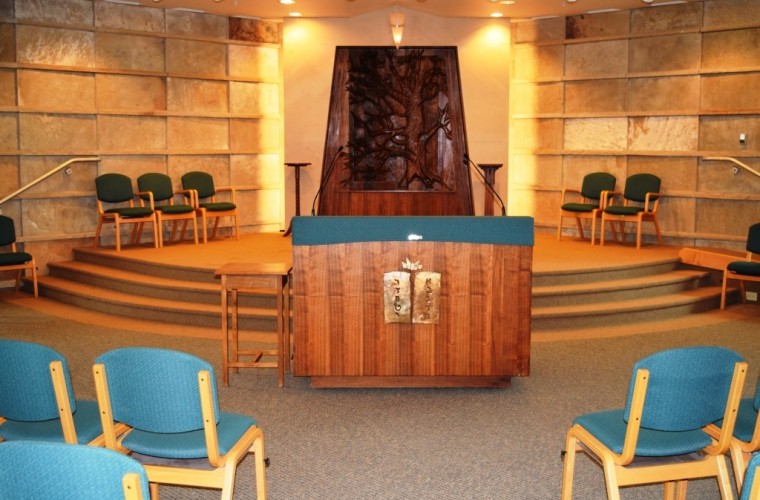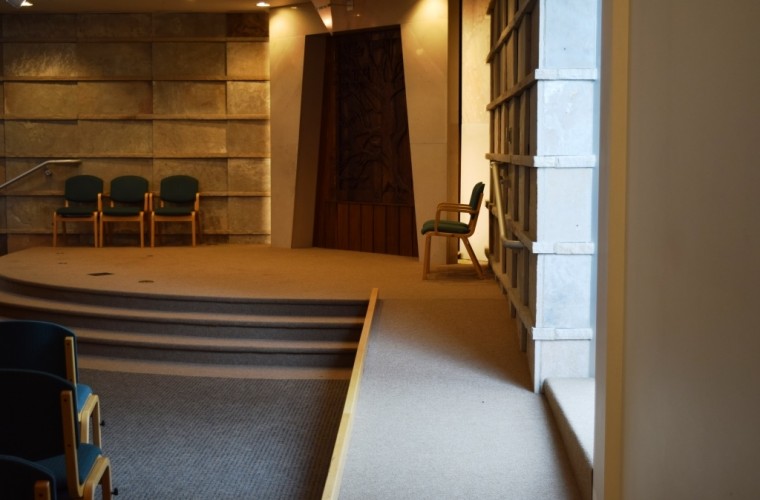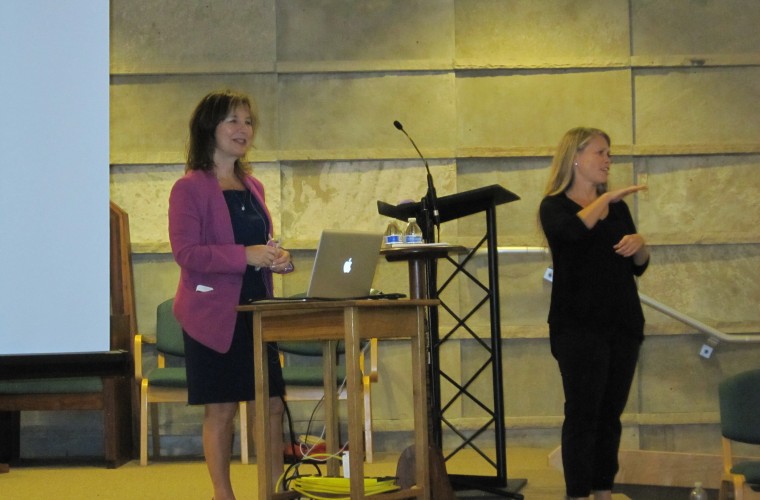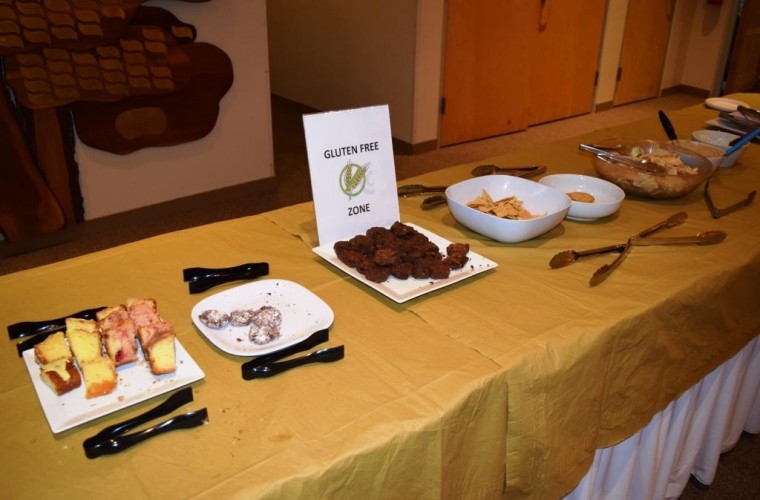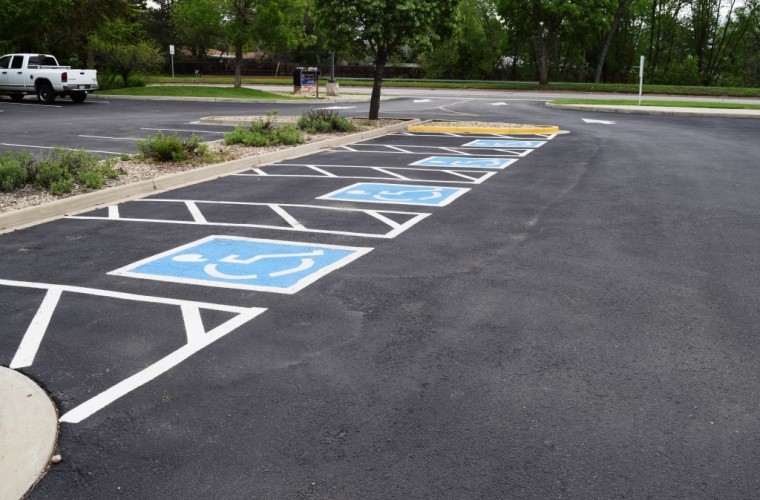Areas of Inclusion: Advocacy & Community Partnerships, Architectural & Physical Accommodations and Transportation, Autism, B’nai Mitzvah, Deafness, General Inclusion, Mental Health, Religious School, and Worship
About the Congregation
3950 W Baseline Rd
Boulder, CO 80303
Number of Congregants: 1,100
Contact Information
Susan Glairon, Head of Congregation Har HaShem Inclusion Committee
303-263-2645
Congregation Har HaShem was Boulder, Colorado’s first Jewish congregation and recently celebrated its 50th anniversary.
Congregation Har HaShem is an inclusive, welcoming community that inspires and supports lifelong Jewish journeys of learning, spirituality and Jewish practice. We are inspired by our tradition to care for one another, our community and our world.
Inclusion Programming
Does this congregation have an inclusion committee?
Yes
Developing Our Program
It started with an idea by Har HaShem member, Susan Glairon. The parent of a child with autism, it was her vision to create an event that would attract significant community attention and participation, beyond our own congregation, and beyond those with a disability or a family member with a disability. She planned an event featuring keynote speaker, Dr. Temple Grandin. Prior to Dr. Grandin’s presentation, 35 Jewish organizations offering inclusive activities or services presented themselves at a resource fair. Dinner was served so all attendees could network. More than 350 people attended the event.
A few months into the planning of the event, Susan created a committee of about seven people, which included members from other synagogues as well as from Har HaShem. The group called itself the Boulder Jewish Inclusion Project (BJIP). While planning that event, Susan recruited for and created a Har HaShem Inclusion Committee. BJIP now consists of a coalition of four Boulder synagogues (including Har HaShem), which meets on an on-needed basis. Most recently, the coalition, led by members of Conservative synagogue, Bonai Shalom, created a survey to assess the needs of those with disabilities, special needs or mental health challenges in the Boulder Jewish community.
Number of people involved in the effort: 1,015
Involving People with Disabilities
So far, only parents of children with disabilities, those involved in special education, Har HaShem staff and other interested congregants have had input.
Funding This Effort
Much of the labor has been free (i.e. volunteer sweat), or we solicited donated services. Har HaShem staff time was mostly donated or partially offset by funds raised. HHS services such as printing, postage and publicity, were mostly donated or partially offset by funds raised. Small grants were solicited to get certain programs going:
• 2014 Susan Glairon received $3,000 from Limmud Colorado to continue Jewish inclusion work. The funds are administered by Har HaShem.
• 2014 Susan’s #MakeItHappen idea received a micro grant of $1,000 from the Charles and Lynn Schusterman Family Foundation.
• 2013 Susan received scholarships from the Harry and Jeanette Weinberg and Ruderman Family Foundations to cover travel expenses and tuition for the Jewish Leadership Institute on Disability and Inclusion.
• 2013 Secured $2,500 through a Limmud-inspired Rose Community Foundation grant to start a Jewish Parent Support Group for Parents of Adults and Children with Disabilities.
• 2012 Raised $1,000. Limmud-inspired Rose Community Foundation Grant for Temple Grandin event.
• 2012 Raised an additional $3,800 at the Temple Grandin event and created a small account of inclusion funds. Raised an additional $1,000 from in-kind donations.
• 2012 Raised $900 for travel funds for Susan to attend the Opening Abraham’s Tent Conference: The Disability Inclusion Initiative (Part of the 2012 Jewish General Assembly in Baltimore) through Limmud Colorado and Rabbi’s Discretionary Fund at Congregation Har HaShem.
Funding Links
Funding Documents
Helpful Agencies & Organizations
Agencies such as the National Alliance on Mental Illness (NAMI), Autism Society of Boulder County, The Boulder JCC and others have been sponsors of our programs and/or advertised our programs in their email newsletters and bulletins.
35 organizations, such as Jewish Family Services, Imagine! (Community-Centered Board), Linking Hearts (Chabad at University of Colorado), Ramah Outdoor Adventure, and others participated in our Resource Fair and helped publicize events. University of Colorado at Boulder's Dept. of Speech, Language, Hearing Sciences provided volunteer students to staff the childcare during events and “No Shush Shabbats.” Chabad arranged for a Kosher food station.
List of Helpful Agencies & Organizations
- National Alliance on Mental Illness
- Autism Society of Boulder County
- Boulder Jewish Community Center
- Jewish Family Service of Colorado
- Imagine!
- Linking Hearts - Rohr Chabad Center at the University of Colorado
- Ramah Outdoor Adventure
- University of Colorado Boulder Speech, Language and Hearing Services
Spreading Awareness About Our Work
Articles about our upcoming events and No Shushing Shabbats have been published in print and online in the Boulder Daily Camera, Intermountain Jewish News, Boulder Jewish News, Reform Judaism magazine and several feature stories have been broadcast on KGNU Denver/Boulder. For a list of articles, please visit the link below.
During No Shushing Shabbats, we hand out a flyer, which describes the service and the reason we are offering such a service, so that newcomers feel prepared and understand the philosophy behind it.
We maintain an extensive PR list of Jewish and disability organizations and we ask them to publish notice of our events in their electronic bulletins and newsletters.
We have an extensive email list of people who have attended our inclusion events and we communicate directly to them.
We have a section on Har HaShem’s website that describes Har HaShem’s Inclusion Committee.
We post our inclusion events on Har HaShem’s Facebook page as well as on the Jewish Disability Advocacy Day Facebook page, and on individual FB pages.
Links About Spreading Awareness
Process & Sharing
Marketing Documents Indicating Our Commitment to Inclusion
- Congregation Har HaShem Website
- Congregation Har HaShem Elaine Hall Webpage
- Congregation Har HaShem Temple Grandin Webpage
History, Materials & Processes that Guided Our Approach
Ensure that you have the understanding of the rabbi, key staff and the volunteer leaders of the congregation.
Invite someone with star power to your first kickoff event to not only attract people from the disability world, but also those who are not.
Capture names and contact information of interested parties at all times and continue to communicate with them.
Utilize press coverage to help spread the word.
History, Materials & Process Documents
Evidence of Successful Inclusion Efforts
We are seeing new families and parents of adults with disabilities attend services. A Learning Specialist works with students with access or disability needs or IEPs. We also have B'nai Mitzvah tutors trained in special education. Students with special needs have become B'nai Mitzvah, including a teen with severe autism, an extraordinary event that involved extensive planning with clergy. Our inclusion training and speaking events have received rave reviews. For a list of testimonials, visit the link below.
Our Temple Grandin event filled the sanctuary with 350 persons, and we had to turn away an additional 100 persons. Our two No Shush Shabbats were 50 to 75 percent full, as compared to 10-40% full on many Friday nights. In addition, we have had several members join Har HaShem partially because of our inclusion practices.
Here is a list of number of attendees to our inclusion events, parent support group, workshops and services.
Congregation Har HaShem’s Inclusion Committee: 6
Dr. Temple Grandin presentation and Community Resource Fair: 350 persons (had to turn away an additional 100 because of building capacity)
Shelly Christensen Inclusion Training: 28 Staff members from Jewish agencies, organizations and synagogues.
Shelly Christensen inclusion training for Jewish educators: 20
Shelly Christensen dinner with parents: 10 families
Shelly Christensen screening of “Wretches and Jabberers” with follow-up discussion: 40
11-week, facilitated, Jewish Parent Support Group for Parents of Children and Adult Children with Disabilities: 8 parents, 3 Rabbis/Educators
No Shushing Shabbats: approximately 150 persons each time
No Shush Havdalah: 40 persons
Elaine Hall Event: 60 people at our synagogue, 40 people at a partnering synagogue, another 100 parents, children and educators at partnering synagogue, 20 people at a private wine and cheese reception.
Meeting to discuss creating Jewish housing for adults with disabilities: 15 Boulder-area disability and Jewish leaders.
Limmud Colorado parent panel presentation: 20 people (also consulted with Limmud to improve inclusivity at their conference).
Hazon’s Jewish Intentional Community conference: 180 participants. (Susan presented an open session on inclusion)
Students helped in our Hebrew and Sunday school by a special educator: 25
Evidentiary Links
Evidence of Changing Attitudes
The attitudes and misconceptions about disabilities are changing among members. But the biggest change right now is through the Har HaShem (HHS) staff. HHS staff and leaders have become increasingly aware of the needs of this population, and they now understand that people with disabilities and their families tend to not feel welcome or comfortable in synagogue settings. They also understand, from the stories the inclusion committee collected (see link below), that some families have not been able to attend services or other programs because congregants perceived their family members with disabilities as disruptive. As a result, awareness developed that we were not fully fulfilling our Torah values.
Our Dr. Temple Grandin event provided the opportunity for hundreds to hear from a highly successful professional with a significant disability, and to realize the contributions people with disabilities can make to society. Many people who were not from the disability world told us they "got it!"
Our No Shushing Shabbats provide alternative approaches to our typical service, which may be appealing to other members of our community as well. For example, participation with simple musical hand instruments, or through movement, began as approaches being considered for those with disabilities, and are now being considered for all participants in the service. Our typical congregants are becoming accustomed to the idea that some people can’t sit still or stay quiet, and that it’s really OK. In all, the staff is creating services that allow everyone to enjoy a service together instead of offering services solely for those with disabilities and other special needs.
Evidentiary Links
How We're Using and Sharing the Disabilities Inclusion Learning Center
We will find resources that pertain to goals that Har HaShem (HHS) wants to achieve and share them with the HHS staff. For instance, we want to expand and improve our No Shushing Shabbat services. I found a lovely video of Rodeph Sholom’s services for people with special needs on the Disabilities Inclusion Learning Center website, and I sent it to our rabbi, executive director and Cantorial soloist. We’re already discussing some changes, such as having a visual schedule at the front of the service to help congregants understand and follow the parts of the service.
Future Inclusion Efforts
We are planning regularly scheduled No Shushing Shabbat services and a No Shushing High Holiday service.
We are planning to create a No Shushing Shabbat Boot Camp so that other organizations near and far can learn about how we did this. We plan to do an assessment of Har HaShem’s inclusion practices and of the building and see where we can make improvements. We hope to add hearing enhancement equipment this year to our Sanctuary audio system. We are part of a collaborative effort of four synagogues that meets on an as-needed basis to discuss inclusion efforts. Right now we are collaborating on a community-wide survey to access the needs of the Boulder Jewish Disability community.

